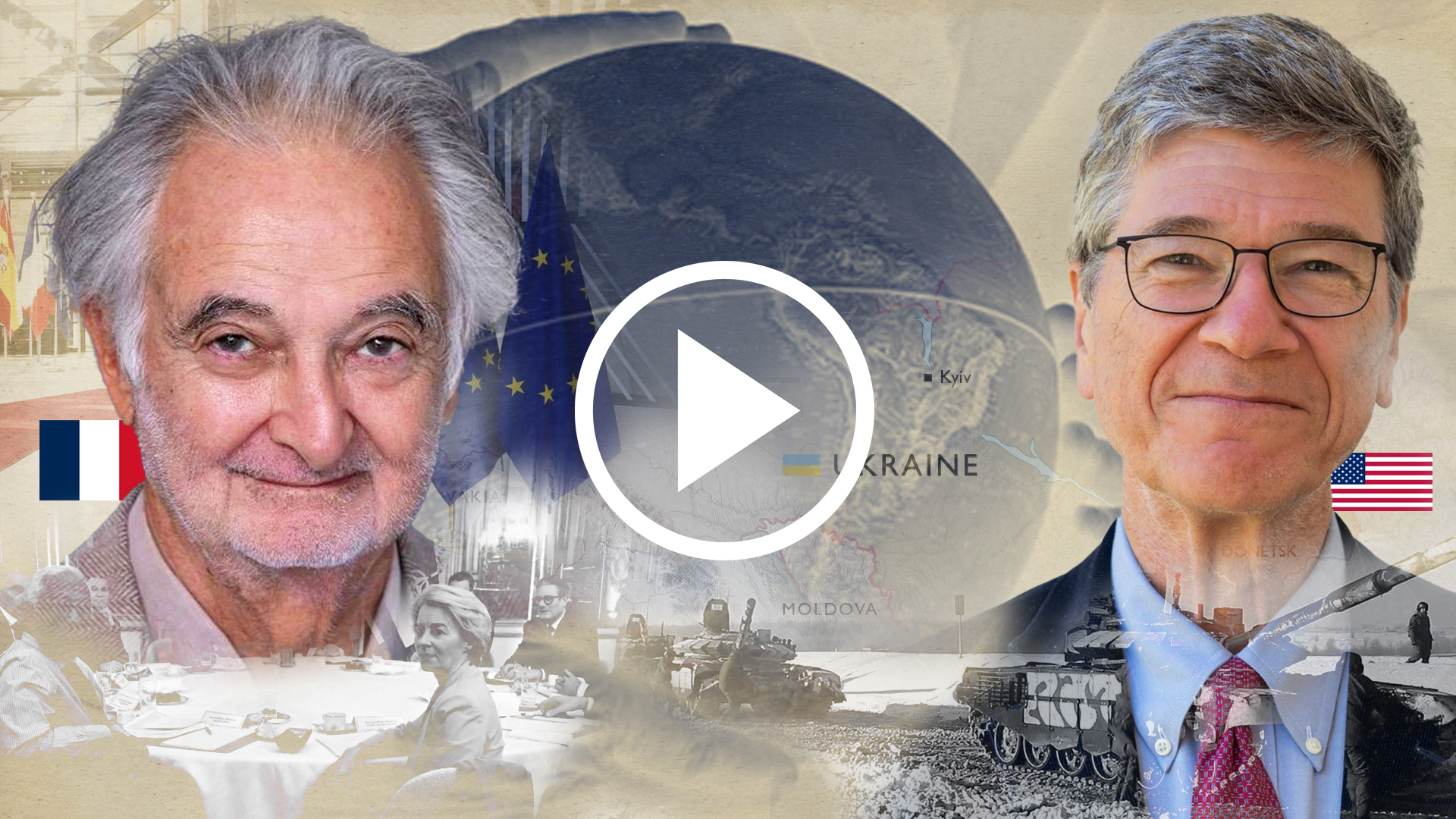European Russophobia and Europe’s Rejection of Peace: A Two-Century Failure
Europe has repeatedly rejected peace with Russia at moments when a negotiated settlement was available, and those rejections have proven profoundly self-defeating. Read more
The Center for International Relations and Sustainable Development (CIRSD) hosted a Horizons Discussion, featuring two of the world’s most distinguished intellectuals, Jacques Attali and Jeffrey Sachs, in a thought-provoking debate on the state of the global order. The conversation, moderated by Vuk Jeremić, President of CIRSD and Editor-in-Chief of Horizons, covered several pressing geopolitical challenges, from the ongoing war in Ukraine to the future of European integration and global power dynamics.

“We Are in a Multipolar World”
Opening the discussion, Jacques Attali, a senior European statesman and economist, stated that the world has always been in disorder and that true global order has never existed. He warned that Europe is presently at risk of geopolitical marginalization, caught between the competing interests of the United States, China, and Russia.
“We Europeans must wake up to the reality that we are alone. We must act as adults and take responsibility for our future. Otherwise, we will either be forgotten or plundered,” Attali remarked, emphasizing the need for a stronger and more united European Union with strategic autonomy.
Jeffrey Sachs, renowned economist and Columbia University professor, took a different approach, arguing that the world is undergoing a major geopolitical transition away from Western dominance. He described the end of the U.S.-led unipolar order and the rise of a more balanced, multipolar world, more decisively driven by China, India, and other emerging powers.
“The age of European and American global supremacy is over. The United States is still powerful, but no one wants to be led by it anymore. Europe, meanwhile, needs to stop panicking and recognize that it will remain a major power if it acts wisely,” Sachs stated.
War in Ukraine: A Divisive Debate
A key part of the discussion focused on the ongoing war in Ukraine. Sachs argued that the roots of the conflict go back to NATO expansion and the West’s failure to integrate Russia into the European order after the Cold War.
“The war in Ukraine began in 1991, when the U.S. decided that because it had won the Cold War it should dictate the future of Europe,” Sachs asserted. “Instead of building a peaceful framework, Washington pushed NATO expansion, regime changes, and military encirclement of Russia—eventually leading to this war.”
Attali agreed that strategic mistakes were made but firmly stated that Russia’s invasion of Ukraine is an unacceptable act of aggression that must be met with European resolve. He warned that failing to support Ukraine could encourage further Russian expansionism.
“We cannot afford to take the risk of letting Russia destroy Ukraine and then turn its sights on Moldova or the Baltic states,” Attali stressed. “Europe must strengthen its defenses and prepare for the long term.”
The two intellectuals also discussed the future of NATO and whether Ukraine should be granted membership. While Attali emphasized that Ukraine must be supported militarily, Sachs criticized Western leaders for publicly promising NATO membership while privately acknowledging it will never happen, calling it a dangerous strategy that escalates tensions without achieving real security.
The European Union: A Superpower in the Making?
On the future of the European Union, both speakers agreed that Europe must become stronger but had different perspectives on how this should happen. Attali argued that Europe is on the path to developing a real defense and security policy, which will eventually lead to a deeper political union.
Sachs, however, warned that the EU is facing an existential crisis due to internal political divisions, economic stagnation, and uncertainty over leadership.
“If Europe does not get its act together, it will decline into irrelevance,” Sachs said. “The EU must stop acting as a junior partner to the U.S. and start defining its own independent global role.”
Looking Ahead: Global Power Shifts and Strategic Uncertainty
The conversation concluded with a rapid-fire round of questions about the future of geopolitics. When asked whether China will be the world’s dominant superpower by 2050, both Attali and Sachs said no, predicting a truly multipolar world instead.
On whether the United Nations Security Council will change, Attali expressed skepticism, arguing that the system is too rigid. Sachs, however, suggested that the EU might eventually take a single seat, replacing France and the UK as permanent members.
Finally, when asked whether the war in Ukraine is the last hot war in Europe for the next decade, Sachs answered yes, while Attali firmly said no, predicting further conflicts ahead.
“Where East Meets West”
In closing, CIRSD President Vuk Jeremić emphasized the importance of open and respectful dialogue between those who disagree.
“I wish world leaders could engage in discussions like this instead of resorting to empty rhetoric and confrontation,” Jeremić stated. “The world is changing, and the only way forward is through meaningful and honest debate.”
Jeremić reaffirmed that Horizons will continue to serve as a platform where East meets West, fostering dialogue and understanding between different worldviews in a time of global uncertainty.
The Horizons Discussion series, an initiative of CIRSD’s Horizons Journal, will continue to bring together global thought leaders to discuss the most pressing challenges of our time.